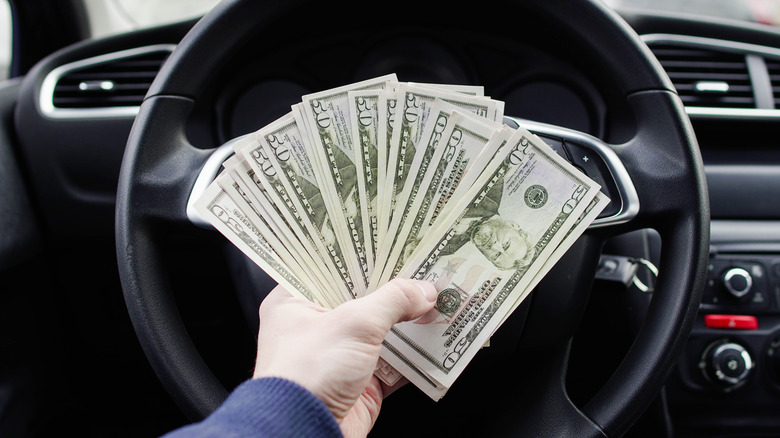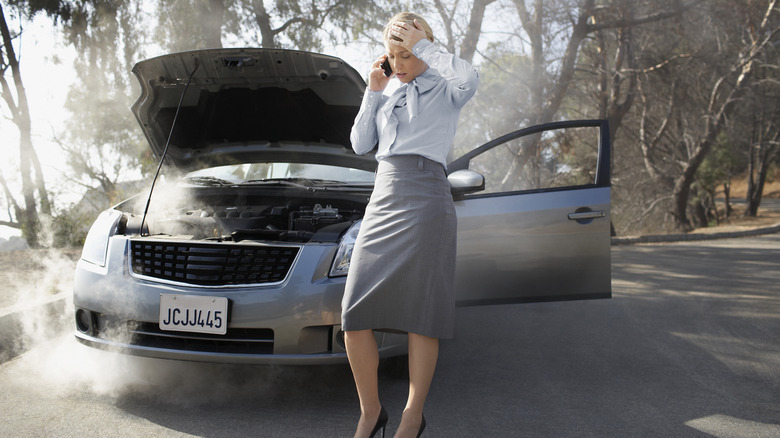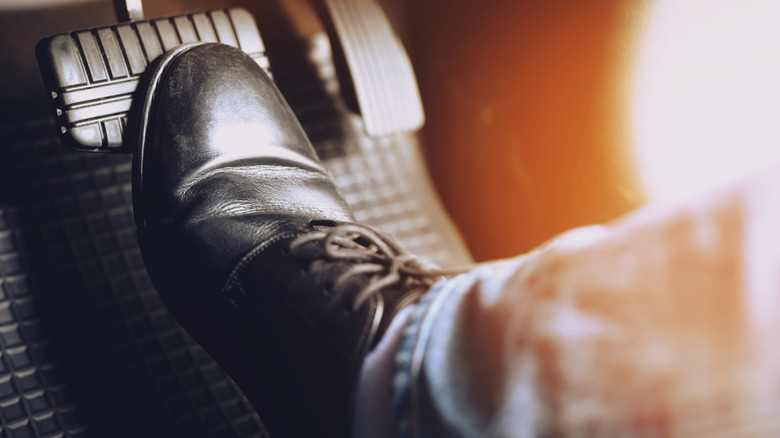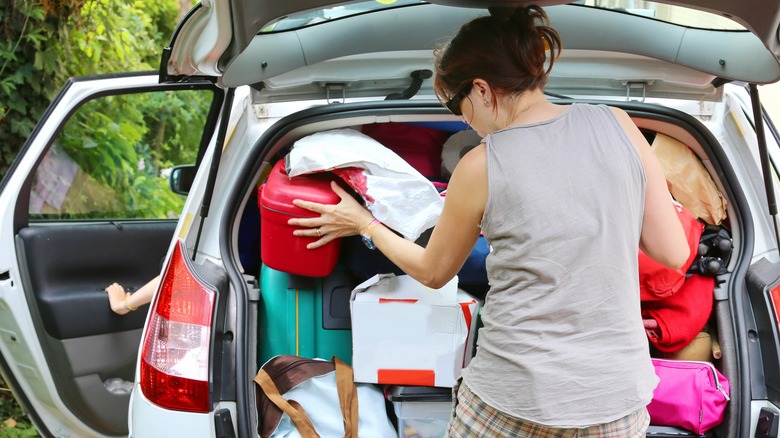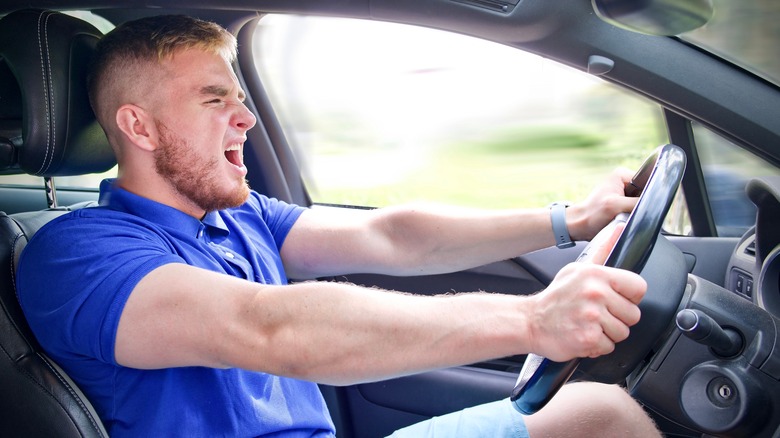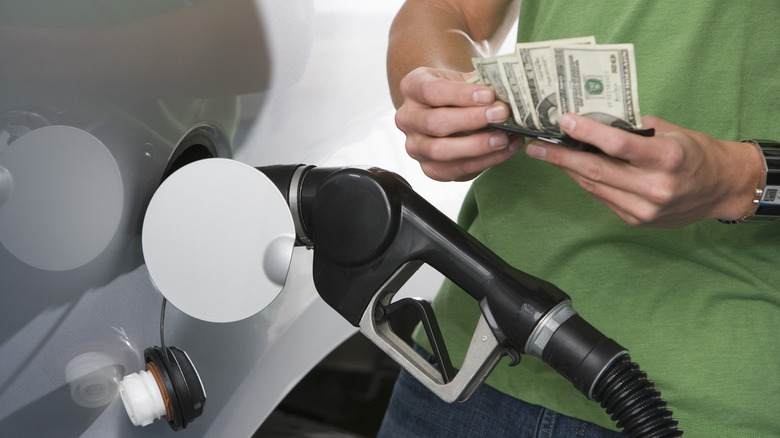5 Bad Driving Habits That Are Wasting Your Money
Nobody likes having to fork over their hard-earned cash for issues that could have been avoided, especially when it comes to their main method of transportation. Whether it's a car, SUV, or truck sitting in the driveway or garage, owners already have enough things to pay for without having to worry about additional expenditures. But most folks end up with excessive automotive expenses because of things they are doing — or more importantly not doing — when they go for a drive.
Saving every penny matters, and it's crucial to shed light on several bad driving habits that can be a major drain on one's wallet — ignoring maintenance, carrying too much, driving aggressively, to name a few. Every single one of these money-mooching habits is not a matter to simply dismiss. If you do, it's only a matter of time before you'll find yourself paying for avoidable fees and constantly breaking your budget.
Ignoring car maintenance
One of the worst things drivers end up doing is developing a nasty habit of not properly taking care of their ride. It's no secret it can be quite easy for some to overlook certain things that keep your car, SUV, or truck running smoothly, such as checking the tire pressure regularly or making sure an oil change is scheduled on time. But the importance of tune-ups and other seemingly mundane but ultimately necessary automotive maintenance habits becomes pretty clear when considering what this pattern could cost down the road.
Not staying on top of things can affect fuel efficiency, making you pay more at the pump. There is also the wear and tear factor to consider. Not changing oil or failing to keep the right amount of air in your tires can cause the vehicle to need new parts and repairs to compensate for the lack of upkeep, resulting in large bills from the mechanic. And in certain circumstances, complete engine failure is a possibility. If you want to save on repairs and fuel use, regular maintenance is crucial.
Heavy braking
Automobiles are designed to stop fast if need be, which is why when someone slams on the brake pedal to prevent an accident, the car, truck, or SUV comes to a complete stop, usually without incident. But it isn't a good idea to get in the habit of sudden or hard braking because it deteriorates the suspension, brake pads, and rotors, leading to the frequent need to purchase replacements and pay a professional for installation.
Besides ending up with expensive trips to the mechanic, the way you brake while driving can also affect how the vehicle consumes fuel. If you're driving fast or following behind someone and are forced to pound the brake pedal, you will eventually have to accelerate to make up for the lost momentum, thus using more fuel than if you were able to brake at a normal pace. Indeed, harsh braking has the potential to damage your vehicle and piggy bank, which should be enough for anyone to put a halt to their bad braking habits.
Carrying too much
If you've ever driven across the country or taken a summer road trip, you're probably aware that the average vehicle can certainly handle a substantial load of luggage and supplies. But doing all that heavy lifting doesn't come free or without sacrifice. In fact, driving with all that extra mass will not only guzzle away a lot of gas but also strain your vehicle.
An overloaded transport puts more than usual stress on the engine, suspension, and brakes. Not only that, excess weight can lead to more gas usage, and according to the experts at the Department of Energy, an additional 100 pounds can diminish a vehicle's miles per gallon by up to 2 percent. This means increased maintenance costs and more trips to the gas station to refuel. In addition, if you're using cartop carriers or roof racks, they not only pack on the pounds but also create air resistance, straining the engine and hampering the gas mileage in the process.
Whether you're gearing up for your next camping excursion or moving all your stuff to a new apartment across town, it's best to keep these endeavors to a minimum. You should also clear out the trunk or backseat of any unnecessary items that could be weighing down the driving experience with unwanted expenses.
Driving aggressively
Aggressive driving involves a range of actions, such as speeding, tailgating, and abrupt acceleration. Such practices strain the engine and reduce fuel efficiency, especially when drivers follow too closely and brake suddenly. Accelerating abruptly at traffic lights and on highways further escalates fuel consumption, leading to increased gas expenditure. Taking on this erratic pattern of behavior behind the wheel also exacerbates wear on essential parts such as tires, brakes, and other vehicle components, leading to higher maintenance costs and reduced vehicle lifespan.
There is also the fact that such maneuvers can increase the chance of getting into an accident, resulting in potential legal fees, hefty repair bills, and possible settlements. It's better to stop these habits sooner rather than later because having a history of acting this way can increase insurance premiums, costing consumers more. Obvious safety hazards aside, it's very apparent that this manner of driving has a significant financial impact on vehicle owners.
Pumping out too much dough for gas
Whether you realize it or not, you might not have the best practices when it comes to your vehicle's fuel consumption. Some lousy habits include ignoring the gas light symbol on the dashboard and driving with a low fuel tank. Doing so can cause a clog in the fuel filter or lead to the fuel pump overheating or even failing much sooner than expected, with each ordeal costing a considerable amount to rectify.
You should also be aware of how you pump gas. It can be easy to pull up to the closest gas station, pay whatever price, and move on. But there are several ways to cut down on how much you shell out for fuel. People sometimes invest in premium gas for a vehicle that does not specifically require it, which will only serve to upgrade their debt and not do anything special for the automobile. Many drivers also have a tendency to ignore the benefits of gas rewards programs that trusted fuel-providing franchises offer, which could save them a solid amount over time. Always take advantage of apps like GasBuddy or Waze to find the best prices.
